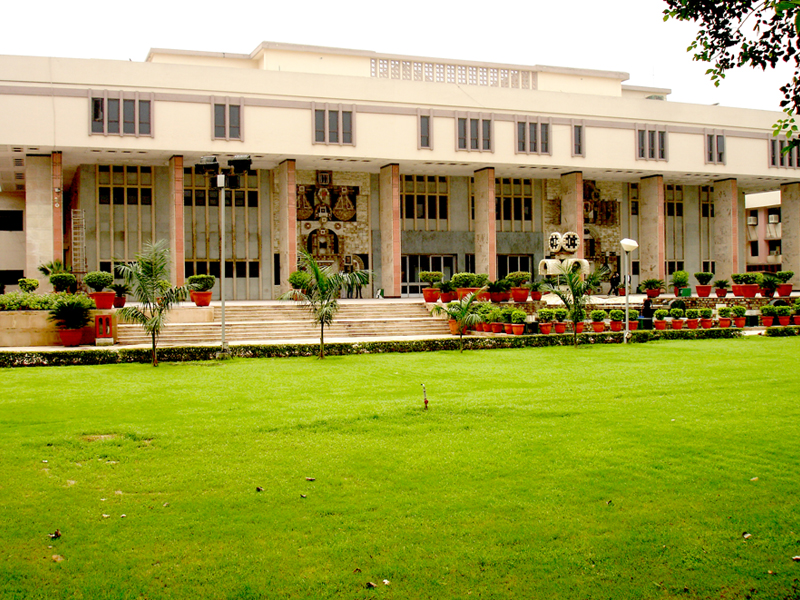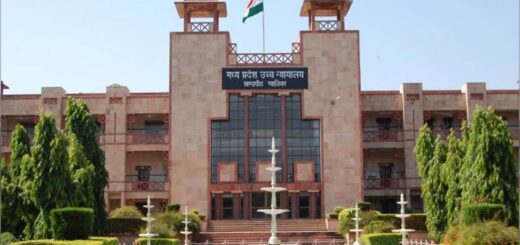Finding a Balance Between Personal Rights and National Security Is Important: Delhi High Court Offers Help to OCI Cardholder Charged with “Anti-India Activities.”

The Delhi High Court has granted some relief to an OCI (Overseas Citizen of India) cardholder accused of participating in “anti-India activities.” Khalid Jahangir Qazi, a U.S. citizen with OCI status, requested permission to enter India through Writ Petitions. Justice Sanjeev Narula, in a Single Bench, stated, “While canceling these orders technically permits the Petitioner to return, concerns about national security and public interest are still important. The power to allow or deny entry is a sovereign right of the state. It is crucial to balance individual rights with national security.” The Bench noted that the cancellation order could not hold up under judicial review and should be overturned. Senior Advocate Parag P. Tripathi represented the Petitioner, while Additional Solicitor General Chetan Sharma represented the Respondents.
The Petitioner, an 80-year-old man living in New York, USA, works as a Clinical Professor of Medicine. He registered as an OCI in 2018 and frequently visited Srinagar, Kashmir, to see his family, which includes two older sisters and one younger sister, all Indian citizens. He mentioned that his sisters have various health issues and depend on him for medical support. To assist his family, he traveled to India regularly from 2017 to 2019 and again from 2021 to 2022. After a break in 2022 due to health problems, he recovered and intended to visit India to reconnect with his family in Srinagar and resolve matters left unsettled after his younger brother’s death in January 2023.
In June 2022, the Petitioner received a show-cause notice claiming he was involved in “anti-India activities” and asking him to explain why his OCI card should not be canceled. He contested the legality of two actions taken against him in the High Court: the cancellation of his OCI card by the Consulate General of India in New York under the Citizenship Act of 1955, and a blacklisting order from the Ministry of Home Affairs under the Foreigners Act of 1946, which barred him from entering India. The High Court observed that the notice made vague claims about the Petitioner’s actions being “anti-India” and harmful to “the sovereignty and integrity of India,” without providing specific details or evidence. Such general accusations did not give the Petitioner a fair chance to defend himself, violating the procedural protections outlined in Section 7D of the Citizenship Act. This section requires the government to clearly justify the need for cancellation so that the cardholder can respond appropriately.
The Court further stated that the lack of specific facts prevented the Petitioner from adequately addressing the reasons for the proposed cancellation. This ambiguity denied him a fair opportunity to mount a proper defense, which is essential for procedural fairness and natural justice. As a result, the Court concluded that the cancellation order could not stand up to legal review and should be overturned. To correct this issue, the Respondents must issue a new show-cause notice that clearly outlines the reasons for the proposed cancellation, giving the Petitioner a chance to respond with informed arguments.
The Court highlighted that any cancellation order under Section 7D must follow fair procedures, ensuring transparency and reasonableness. It noted that the unclear allegations and lack of specific reasons in the show cause notice do not meet these requirements, violating the law and principles of natural justice. The Court pointed out that, unlike the Citizenship Act, Section 3 of the Foreigners Act does not specifically require a hearing or similar procedural protections as those found in Section 7D of the Citizenship Act.
The Court warned that if the Respondents could use Section 3 to blacklist an OCI cardholder based on the same reasons for cancellation under Section 7D, without following the necessary procedural protections of the Citizenship Act, it would lead to significant legal conflicts. If this protection is not included in the law, the government could unfairly apply two different remedies for the same actions, using both a blacklisting order under Section 3 of the Foreigners Act and a cancellation order under Section 7D(e) of the Citizenship Act. The Court emphasized that relying on a simple affidavit, which does not have the authority of a formal order, to deny essential rights under OCI status is problematic. Proceeding on such weak grounds without proper procedural fairness could set a dangerous precedent, threatening the special rights provided by the Citizenship Act.
The Court stated that the existing laws are enough to address the issue, so there is no need to look deeper into the claims of constitutional rights violations. As a result, the Court will not review the constitutional issues brought up by the Petitioner or give any opinions on them at this time. The Court also ordered that before the Petitioner is allowed to enter India, the Respondents must provide a new notice that clearly outlines the reasons for any planned restrictions or cancellations. Thus, the High Court closed the Petitions and provided the required instructions.
Cause Title: Khalid Jahangir Qazi Through His Power Of Attorney Holder Farida Siddiqi v. Union Of India Through Secretary & Ors. (Neutral Citation: 2024:DHC:8754)









